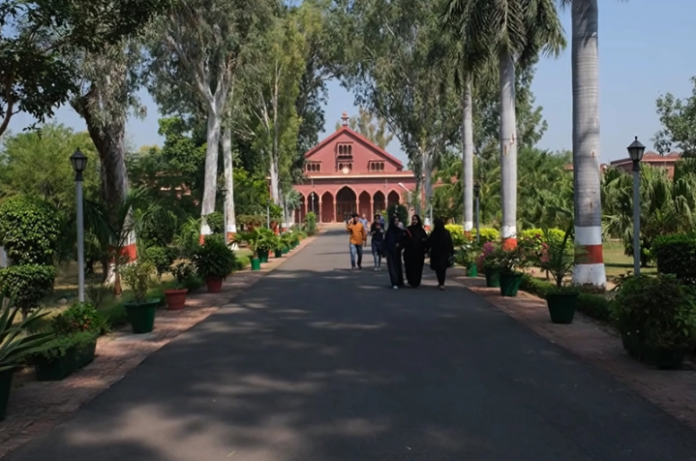Aligarh: The Department of Physics, Aligarh Muslim University (AMU), has brought global recognition to the institution as part of the internationally acclaimed ALICE Collaboration, which has been awarded the prestigious 2025 Breakthrough Prize in Fundamental Physics.
The prize has been conferred on the ALICE Collaboration for its detailed measurements of the Higgs boson properties confirming the symmetry-breaking mechanism of mass generation, the discovery of new strongly interacting particles, studies on rare processes and matter-antimatter asymmetry, and explorations of nature at the smallest scales and under the most extreme conditions.
This recognition celebrates the significant contributions of the AMU Physics team under the leadership of Prof. M. Anisul Ain Usmani, Chairman, Department of Physics, and Prof. Shakeel Ahmad, Project Investigator. Their research efforts have been integral to the global scientific investigations conducted at CERN’s Large Hadron Collider.
Prof. Shakeel Ahmad, a senior physicist and dedicated member of the ALICE Collaboration, has played a vital role in these high-impact studies. Along with his team of researchers from AMU, he has contributed extensively to the international effort, thereby enhancing India’s standing in the global high-energy physics community.
The Breakthrough Prize, widely regarded as the “Oscars of Science”, carries a total award of three million US dollars, with five hundred thousand dollars allocated to the ALICE Collaboration. This amount has been donated to the CERN & Society Foundation to support doctoral students from member institutes, including AMU, providing them opportunities to pursue research at CERN and strengthen international academic cooperation.
The prize was accepted on behalf of the ALICE Collaboration by Marco van Leeuwen of Nikhef, who served as the spokesperson from 2023 to 2025.
The University has congratulated Prof. Shakeel Ahmad and his team for their exceptional contributions and extended appreciation to all faculty members, research scholars, and students associated with the project for their commitment to scientific excellence.




